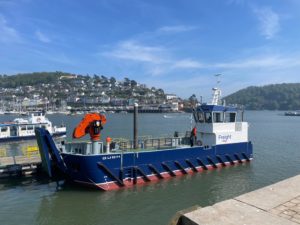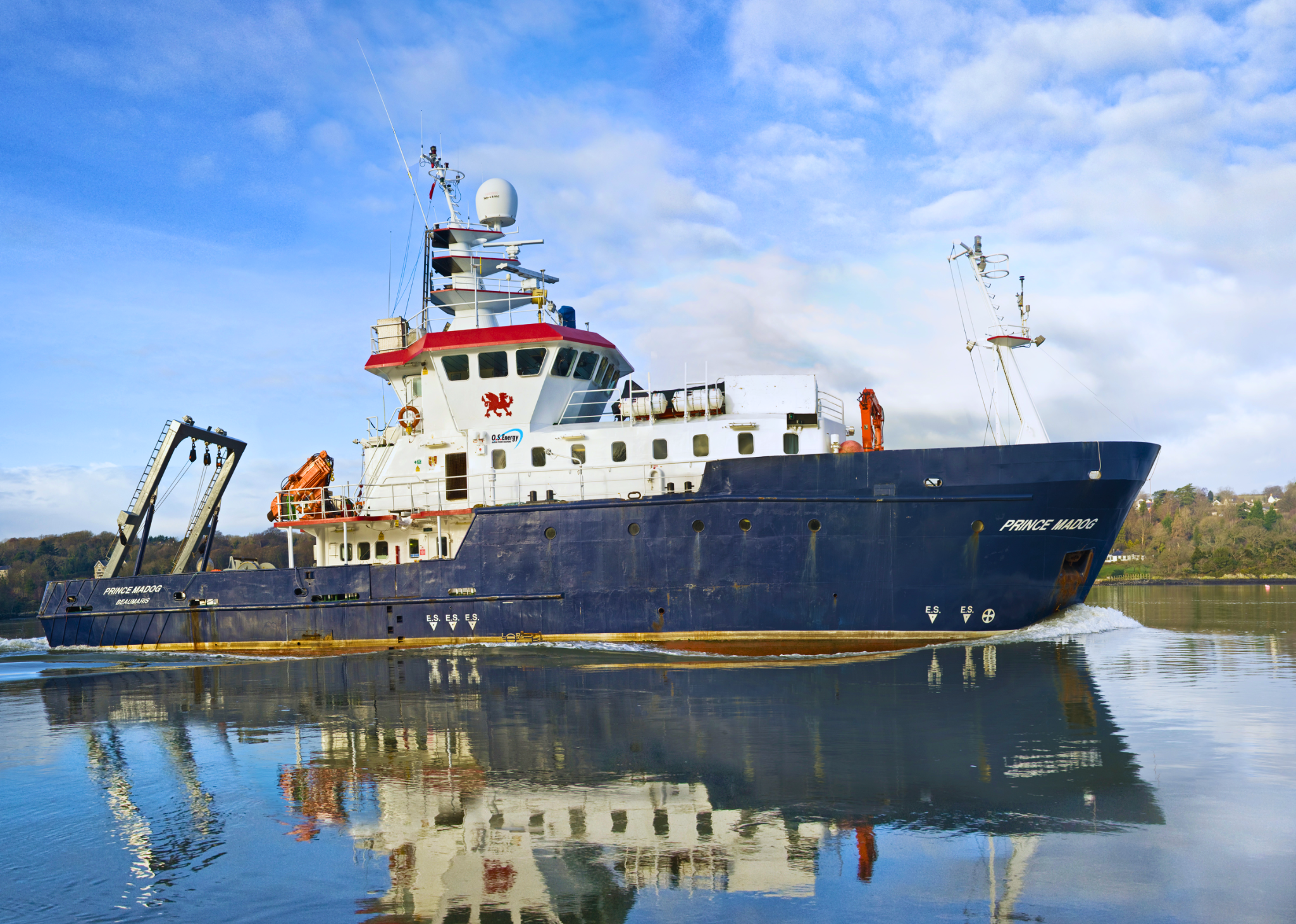The Centre for Future Clean Mobility (CFCM) is part of the Clean Maritime Demonstration Competition Round 3 (CMDC3), which was announced in September 2022, funded by the Department for Transport and delivered in partnership with Innovate UK. As part of the CMDC3, the Department allocated £60m to 19 flagship projects supported by 92 UK organisations to deliver real world demonstration R&D projects in clean maritime solutions. Projects will take place in multiple locations around the UK from as far north as the Shetland Isles and as far south as Cornwall.
The CMDC3 is part of the UK Shipping Office for Reducing Emission’s (UK SHORE) flagship multi-year CMDC programme. In March 2022, the Department announced the biggest government investment ever in our UK commercial maritime sector, allocating £206m to UK SHORE, a new division within the Department for Transport focused on decarbonising the maritime sector. UK SHORE is delivering a suite of interventions throughout 2022-2025 aimed at accelerating the design, manufacture and operation of UK-made clean maritime technologies and unlocking an industry-led transition to Net Zero.
A university research ship, the Prince Madog, is set to reduce its emissions by up to 60% thanks to a pioneering £5.5 million hydrogen power initiative that could help re-shape the future of shipping. The Transship II project is the largest retrofit of its kind to-date and will see the Prince Madog retrofitted with a hydrogen electric hybrid propulsion system that will enable zero to low emission operation by 2025. The project is part of the Clean Maritime Demonstration Competition Round 3 (CMDC3), funded by the Department for Transport in partnership with Innovate UK. It will be delivered by a consortium of major UK innovators in green maritime technology and hydrogen systems, led by O.S Energy who own and operate a fleet of dedicated offshore service vessels.
Other consortium partners include H2Tec, part of Edinburgh-based hydrogen technologies expert Logan Energy, as well as Solis Marine Engineering, Newcastle Marine Services, Chartwell Marine, Cedar Marine, Stone Marine Propulsion and the universities of Exeter and Newcastle-Upon-Tyne.
The Prince Madog, co-owned by Bangor University in Wales, recently celebrated 20 years of service to education and science. The research vessel has changed the way we understand marine and coastal sciences and is the only one of its kind in the UK and one of the largest in Europe.
The new hydrogen propulsion system, which will work in conjunction with a diesel-fuelled main engine, will enable zero emission operation at slow speeds or over short distances – such as daily teaching trips with the students from the School of Ocean Sciences at Bangor University. In normal operation, the hybrid system and new novel propulsion design will reduce emissions by up to 60%.
According to Offshore Renewable Energy Catapult (OREC), it is estimated the offshore support sector will be worth £26 billion by 2050 and that an additional 1,200 vessels will be needed to service the UK’s industry and support the transition to net zero by 2050.
Around 90% of all consumables are moved by sea and the shipping industry globally is responsible for 940 million tonnes of CO2 – the equivalent of at least 2.5% of the world’s total CO2 emissions. The International Maritime Organisation has set a target to cut these emissions by 50% by 2050 and the UK government is the first in the world to include emissions from international shipping in its domestic carbon budget.
The Prince Madog is a multi-purpose research vessel used to conduct marine research along the British coastline and in the Irish and Celtic Seas. As the UK’s only fully seagoing research ship, it’s commonly used to train future marine scientists at Bangor University and further afield.
The retrofit work, which will take up to two years, is set to begin in April. Once complete, the Prince Madog will receive hydrogen from the Holyhead Hydrogen Hub on Anglesey, North Wales.
Martin Nuernberg, Managing Director of O.S. Energy (UK), said:
“OS Energy is thrilled to be leading this ground-breaking project assembling a strong consortium of industry leading innovators to push the boundaries of traditional maritime propulsion systems and paving the way for a cleaner and more sustainable future for the shipping industry. The Transship II project is a testament to our commitment to innovation and environmental responsibility and will demonstrate the potential of green technology application in the maritime industry.”
Transport Secretary Mark Harper said:
“Our maritime sector imports 95% of goods into the UK and contributes £116 billion to our economy – more than both aviation and rail combined.
“With growing the economy one of the government’s top priorities, we must continue our efforts to ensure the UK remains a pioneer in cutting-edge clean maritime solutions.
“The funding we’re awarding today will help to do just that, bringing emission-free concepts to life and fuelling innovation.”
Keigh Taylor, Managing Director of H2Tec said:
“This is a very exciting project for H2Tec and our partners. We believe hydrogen power is a great solution for the maritime industry which needs to drastically reduce its CO2 emissions. The project is an ideal opportunity to demonstrate innovative new refuelling technology and provide a vision for the future of shipping.”
Chris Smith Director of CFCM said:
“We are delighted as a centre to take part in the third round of CMDC3 and support this exciting project led by OS Energy. The consortium involved in this project including Ecomar, H2Tec, Newcastle Marine Services, Solis Marine Engineering Limited, Chartwell Marine, Cedar Marine Limited, Stone Marine Propulsion Limited and University of Strathclyde are global leaders in the field. CFCM continues to expand as we demonstrate our clean prolusion expertise in the maritime sector. We have been working with OS Energy for a number of years and have found continued success built upon aligning our strategic priorities.”




